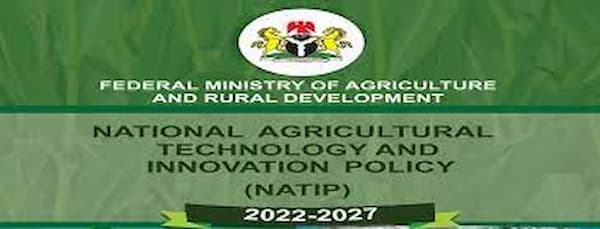To boost agribusiness in the country, the Federal Government (FG) has launched a six-year National Agricultural Technology and Innovation Policy (NATIP) from 2022 to 2027.
The six-year policy aims to achieve long-term development of national technological and innovative capacity in order to accelerate import substitution.
READ ALSO: British Airways blocks travel agents from selling flight tickets
Speaking at the inauguration in Abuja on Friday, Mohammed Abubakar, Minister of Agriculture and Rural Development, said the policy was needed in particular to prioritize the reduction of rice, dairy, and fish imports.
He went on to say that it also aims to boost resilience and digital agriculture, thereby encouraging agricultural investments.
“This is a response to the present administration’s agenda of diversifying the nation’s economy from petroleum oil-based to agriculture and solid minerals-driven national development strategy,” he said.
“This would empower small-scale farmers to adopt new technologies and best practices for enhanced production, processing of agricultural commodities for local consumption, and export to other countries.
“The focus of the new NATIP 2022- 2027 was premised on the 10 thematic areas of stakeholders’ synergy and alignment, knowledge creation and transfer, rapid mechanisation, and agricultural development fund establishment.
“Others are, extension service delivery revitalisation and livestock development, priority crop value-chain strengthening, fisheries and aquaculture.
“Also included, marine and inland fisheries development, market development, and agriculture land investments partnership.”
However, Abubakar stated that the agricultural promotion policy of 2016-2020 had shaped the ministry’s operations over the last six years.
He stated that the 2016-2020 framework facilitated a significant increase in agricultural production and job creation in the country through infrastructure, research, extension, mechanization, and value-chain activities.
READ ALSO: ASUU Strike: We have resumed academic activities – KASU
The policy document also promotes digital and climate-smart agriculture, rural infrastructure development, nutrition, and export standardization.
Agricultural lending and insurance, data and information management, access to quality agricultural inputs, agricultural land and water resource utilization, women and youth in agriculture, cooperative revitalization, and national food reserve and food security are among the others.



Leave a Reply